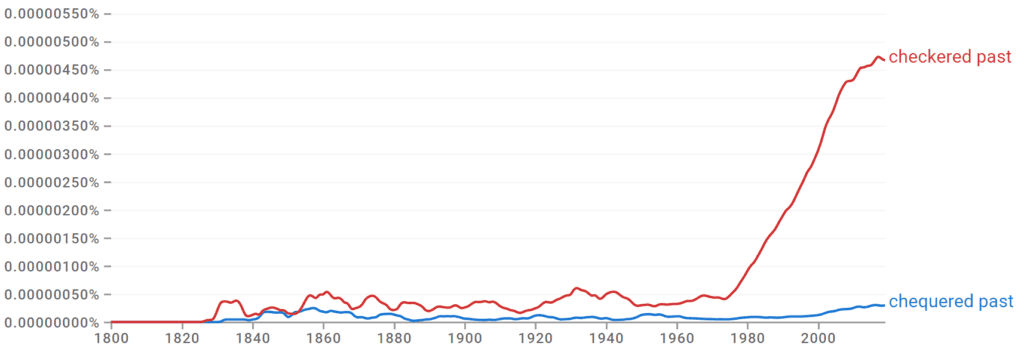What does it mean to have a “checkered past”? It’s a fairly common phrase in modern English. We use it to describe someone with a questionable or controversial history or seedy roots, like a former gang member. But where did the saying come from, and how should you be using it respectfully today? I’ll tell you all about it!
So, What Does Checkered Past Mean?

When you hear that someone has a “checkered past” or a “chequered history,” it means they have some kind of shady history that includes bad experiences, choices, or actions, whether on their part or not. It’s usually used to describe someone who’s made a bunch of mistakes or taken dangerous risks.
On the positive side, you can use the phrase to describe someone’s road to success. As we all know, success doesn’t come easy, and there are usually a ton of ups and downs along the way. Someone who’s a big star now might have had a checkered past of bad auditions and roles they didn’t really like.
Is It Checkered Past or Chequered Past?

Whether you’re looking at checkered past meaning or chequered past meaning, the spelling makes no difference. Both spellings are technically correct, but “checkered” is more commonly used in American English.

“Chequered” is found in British English. Canadians tend to adopt the same spelling rules as the UK for most words, but in this case, “checkered” is even preferred here. Either way, the phrase’s meaning remains the same; it’s just a simple case of regional preference.
Origin of the Phrase Checkered Past
Some say it’s somehow linked to a chessboard and its checkered pattern, but there’s no evidence of the connection. The phrase came about sometime in the early 1800s from the figurative description of a person who had both good and bad personality traits.
One of the earliest recorded examples of its use was in 1656 by Manasseh ben Israel in “Vindiciæ Judæorum.” And then later in 1711, with the works of Jonathan Swift, he stated, “Our weather, for this fortnight past, is chequered, a fair and a rainy day.”
How Do You Use the Phrase?
You should use it to describe someone you know who has a bump past, whether good or bad, like a recovering drug addict or a politician that got out of the game and refuses to talk about his career. I’ll share some sentence examples below so you get a better idea.
Checkered Past Synonyms
- Spotty record
- Rocky history
- A mixed bag of experiences
- A colorful life
- Motley past
Examples of Checkered Past in a Sentence
- Despite his checkered past, John turned his life around and became a successful businessman who now runs the local bakery.
- The city’s checkered past includes not only periods of corruption and scandal but also moments of triumph and progress. It’s a work in progress, but it’s becoming a great place to live.
- I had to quietly leave the company because of its checkered history of labor disputes and lawsuits. I just couldn’t be involved in any of it.
- David has a checkered past of bad roles, but his acting career is at the top now that he has landed that part in the new superhero movie.
The recent checkered past of Wall Street — and Goldman Sachs in particular — seems to be moving down to Pennsylvania Avenue. (The New York Post)
Do You Have a Checkered Past?
See? Easy peasy. When you hear the phrase “checkered past,” imagine the visual of a checkerboard or chessboard and how you must make several good and bad moves to get to the end. I guess that’s where people get the idea of a checkered past.
